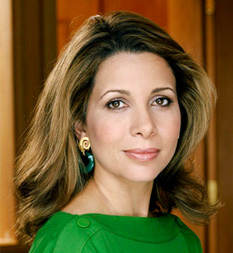Lausanne (SUI), FEI Press Release, November 3, 2011: FEI President HRH Princess Haya celebrated the 250th anniversary of the first veterinary school in Lyons (FRA) and the birth of the modern veterinary profession in her opening address at the 2011 World Equine Veterinary Association (WEVA) Conference in India yesterday (2 November (2011 WEVA CONFERENCE).
The FEI President was addressing 600 delegates, including key members of the world’s equine industry, breeders and leading equine veterinarians, at the conference in the historic city of Hyderabad.
“The events organised around the world to mark World Veterinary Year have demonstrated the crucial role veterinarians play in improving animal health, pushing the boundaries of biomedical research and protecting the environment,” HRH Princess Haya said.
“The challenge is to better serve the wider equestrian community by leading and taking courageous and sometimes difficult decisions while ensuring that our horses, our industry, our sport, our food supplies and the future scientific breakthroughs needed by the world over are protected in all ways.”
In her opening address, HRH Princess Haya drew a round of applause from the audience when she called for the safe international movement of high performance horses, and taking a risk-based approach without over-precautionary levels of red tape and restrictions.
WEVA 2011 brought together leading equine veterinarians from around the world with a broad programme, including a special FEI session highlighting the past and current contribution of the veterinary profession to equestrian sport.
“The annual WEVA conference is growing every year and covers a more and more diverse programme as the remit of veterinarians grows,” said WEVA President Dr Tim Greet (UK).
We are delighted that FEI President Princess Haya chose WEVA 2011 here in India to express a vision for the relationship between the equine veterinary profession, equestrian sport and the wider industry as we enter the next 250 years. “We must keep to our guiding principles of maintaining equine welfare and using best veterinary science.”



Leave a Reply
You must be logged in to post a comment.